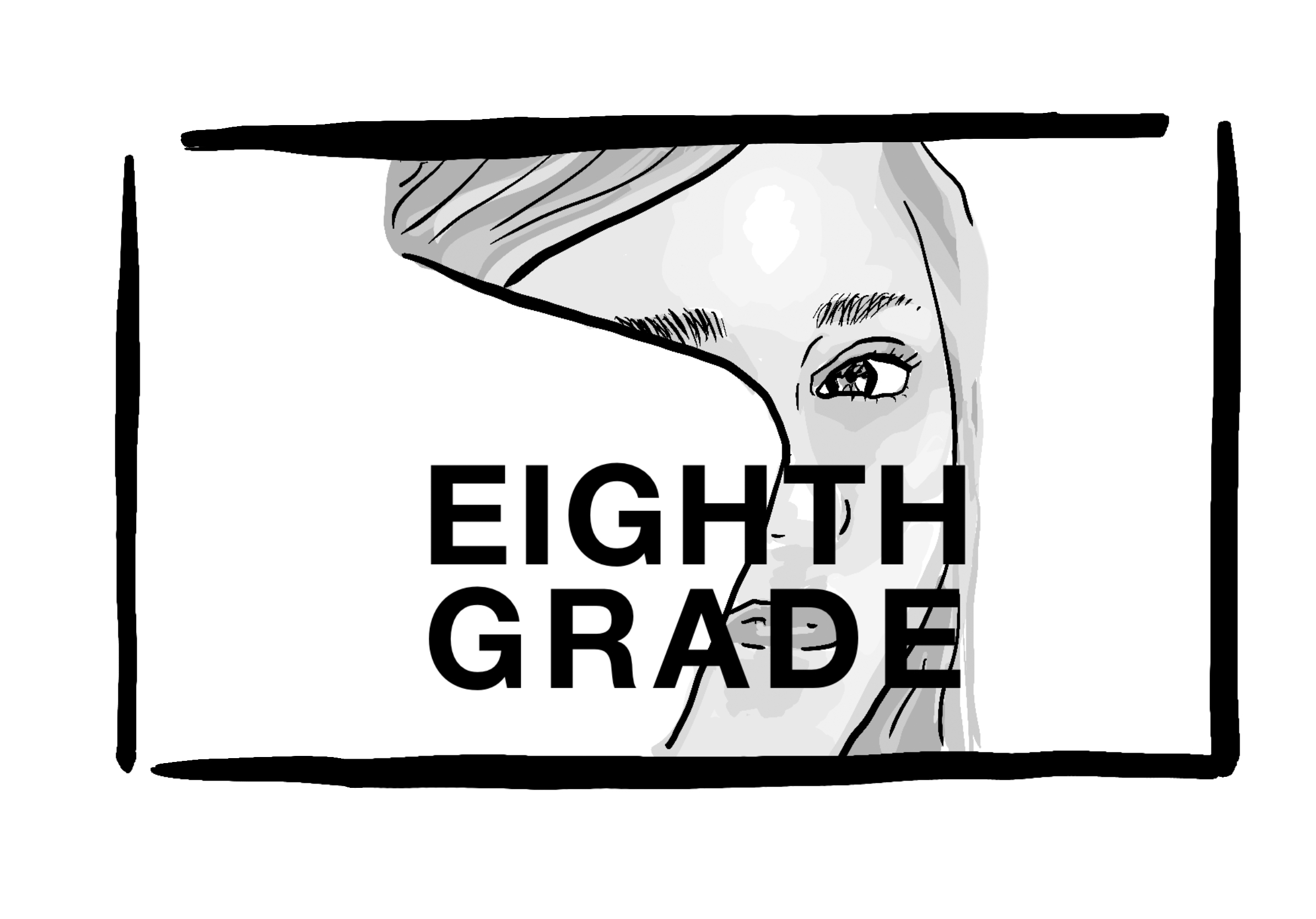Eighth Grade: A Box of Little Things
March 31, 2023
 Kate Padilla
Kate PadillaThis contains spoilers for “Eighth Grade.”
“Can you help me burn something in the backyard?” “…Yes.” Kayla (Elsie Fisher) and her father Mark (Josh Hamilton) sit in lawn chairs before a campfire. Kayla sets a time capsule with the fire, an old shoebox her fifth-grade self had stuffed with little mementos and trinkets, upon which she wrote with multicolor foam letters “TO THE COOLEST GIRL IN THE WORLD.” There’s a blankness on Kayla’s face as her father asks her if there was anything inside. We can recall the Justin Bieber photos, stickers and ticket stubs. But Kayla—who’s been worn down from a social media addiction, alienation at school and a sexual advance from an older boy, which she did not consent to—responds to her dad that the box didn’t have much in it, except her hopes and dreams.
I’m a collector of small, little things. Or rather a happy receiver of small gifts. I prefer two words for them: “talisman” and “memento.” A strip from a rundown photobooth with some scribbling on the back of it. A playbill with notes from high school friends I haven’t seen since. Letters my mother wrote me that she’d hide in my luggage. And just like Kayla, so, so many movie ticket stubs. I chose those two words because when I’m alone, separated from the people I love, I still have the material object they gave to me. It transmits a warmth, gives me strength to carry on like a fantastical talisman would. “Memento” is clearer—the object is a keeper of a memory, a relic from the past. A connection to the past through the material gives you a focus point, a reference of comfort.
Bo Burnham was not a stranger when he wrote and directed “Eighth Grade.” Burnham broke out as an early YouTube star in the late 2000s and built a career as a musician and comedian. Burnham is an entertainer who has always—in his comedy and music and interviews—been outspoken about the unnatural stress caused by the internet. Acknowledging how his own success was possible through social media, he nevertheless remains highly critical of the demands social media companies make of their users. At a 2019 discussion of “Eighth Grade” at the Child Mind Institute, Burnham even went as far to say that social media companies are trying to “colonize every minute of your life.” Attention is a monopoly that extorts the user’s attention for profit. They won’t give you anything in return.
Kayla and Mark sit by the fire in silence watching the box of trinkets burn until Kayla asks whether having her as his daughter makes him sad. Kayla is a shy girl. So shy, in fact, that her classmates voted her “Most Quiet.” She posts motivational vlogs on YouTube, giving advice on confidence and kindness—not that she has any kind of large following. These videos just join the void of the YouTube search engine. Kayla is split between wanting to be this perfect-looking, acne-free person she sees on Instagram, and her genuine anxiety and discomfort that relegate her to that “Most Quiet” girl. She is very moody because of it, most evident in her interactions with her father, Mark. Mark is notably enthusiastic to be with his daughter and see that she’s doing alright, but Kayla always grows overly exasperated with him. Kayla’s self-image is reliant on unrealistic projections of social media and popularity, which never give her a sense of validation. This moment by the campfire marks the first time she turns towards her father for validation. And Mark delivers. In a touching monologue he exalts how proud he is to be her father, amazed at how she in turn makes him feel. Kayla moves and hugs her dad for the first time in the movie.
I really value my little mementos, but they always fail me when I remember that they are just that—memory I’ve attached and expanded onto an object. Burnham is suspicious of the material as he is of the digital. These things are not replacements for the things in front of us. One’s real hopes and dreams exist out in the open, not confined in a three-year-old shoebox. I believe Burnham finds that nostalgia and social media work similarly in their seduction of our attention, luring us with imagined perfections. These things are inherently unattainable, but our need and desire for validation still exists. Just maybe it’s much closer to us than we imagine it to be.
Eighth Grade is currently streaming on Kanopy.

Comments
Before submitting a comment, please review our comment policy. Some key points from the policy: